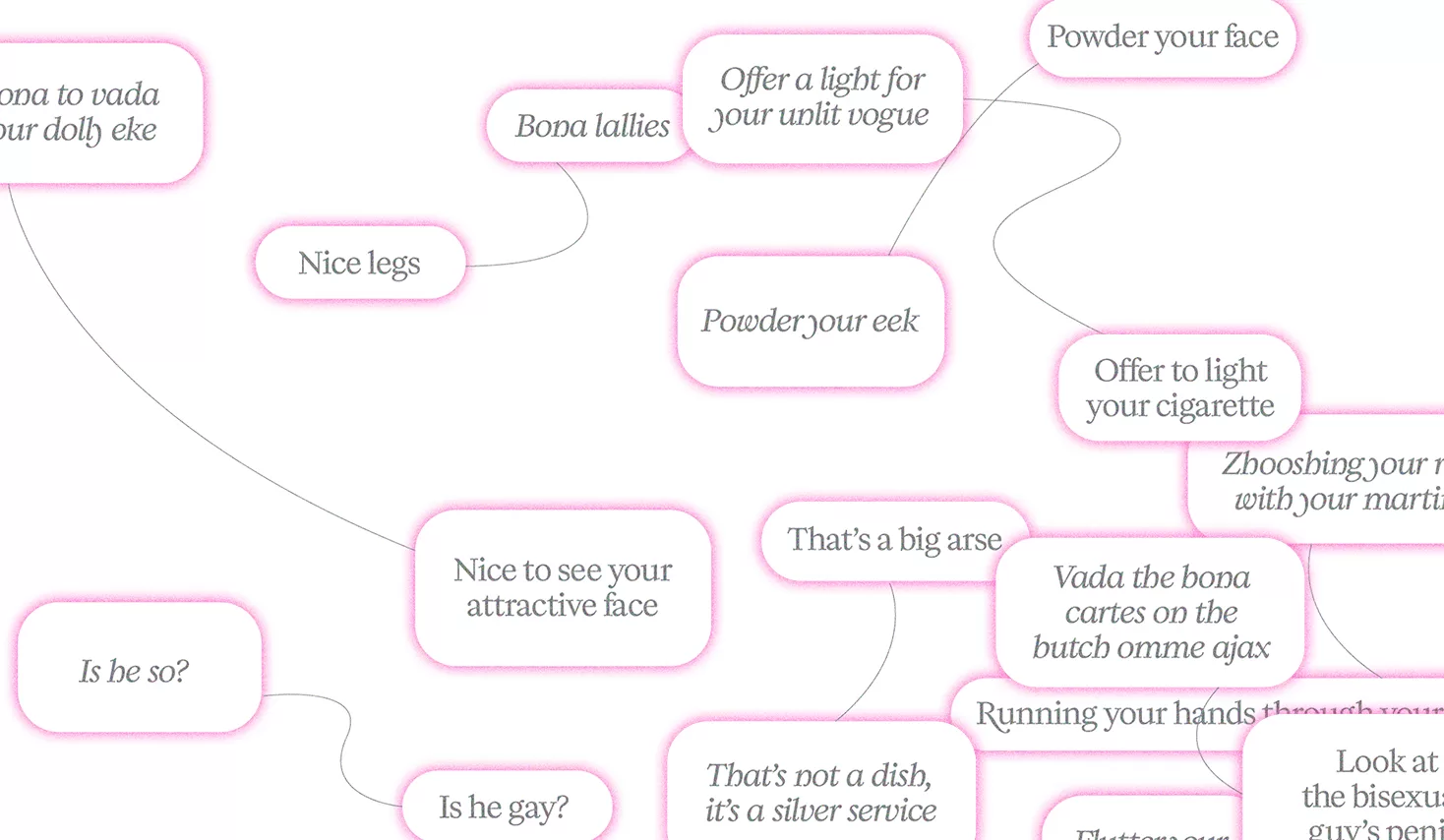However, there remains an interest in preserving Polari both as a matter of queer archiving and a little fun. Indeed, it’s a joy to speak for many gays and fag hags, rich with inuendo, double-entendre and the kind of vicious wit you expect from an old drag show down Brighton. Often spoken from the side of the mouth or from under one’s glass (bevy), it comes from a long lineage of influences, sharing much of the same legacy as British drag. Watch a little footage from Maisie Trollette, Britain’s oldest working drag queen, and you’ll hear it riddled among sentences as she reads her audience to filth with tongue in literal and proverbial cheek. Even now, Polari phrases crop up in common parlance. Trying to scarper from an overpriced dinner, using the khazi, or telling someone to naff off – Polari is a trusty linguistic device, ideal for adding a little zhoosh.
Today on #BetwixtTheSheets it is so bona to vada @_paulbaker_ & chat about the omi palone’s parlare! Didn’t understand that? Good! Because we’re talking about the history of Polari, the secret language of gay men when homosexuality was criminalised https://t.co/OrWhG68Hq7 pic.twitter.com/BEABzSX0kI
— Whores of Yore (@WhoresofYore) September 26, 2023
Before Polari, though, there was Parlyaree, a secret argot used among 19th-century circus performers – many of whom had come from Italy – to speak without punters understanding. This language, which was a major inspiration for Britain’s seaside Punch and Judy shows, further evolved at the end of the century when it began cropping up on merchant navy ships, in Victorian music halls and theatres. Here, users would throw in Yiddish, backslang and cockney to the Italian and Romani mix, forming Polari as we know it.
By the 30s, it became the lingo of choice for queens and underworld villains, remaining integral to the former well into the 60s. “It could be used as a form of information exchange in cruising spaces like parks,” says Paul Baker, the linguist behind Polari: The Lost Language of Gay Men. He points to the use of female names as code. “A hissed ‘Lily’ could warn others that the police were approaching, for example, and during a slow night, men might gossip in Polari about past and future conquests.”
Baker, a gay man who was first acquainted with Polari by an elder during the 90s, was intrigued by the language and its gradual extinction. He correlates its decline with a number of factors, including the 70s Gay Liberation Front (GLF), which considered Polari the very embodiment of closeting. Another factor, he says, was its explicit use in BBC’s Round the Horne radio show broadcast during the 60s by Hugh Paddick and Kenneth Williams. The pair, who often caricatured homosexual men, were, by all accounts, practising queens, and Polari was their way of winking and nudging to a mainstream audience. “We’ve got a criminal practice that takes up most of their time,” they’d cackle.
Lavinia Co-op, a veteran drag artist in London and New York, was a part of the Gay Liberation Front, although she’s a firm believer and student of Polari. In fact, it was in GLF that she first heard terms being thrown around. By the 80s, she met an older queer who had worked on the ships post-war, and they gave her the lowdown. As she understands it, Polari thrived in this homosocial, panto-camp environment. “The captain of the ship would have a party, and some would dress up in drag,” she says. “Of course, it was okay as it was a performance.” Despite Polari’s characterisation as London-centric, Lavinia keenly notes its prevalence across the UK. It was “You alright, Mary?” down South, and “You alright, May?’ up North.
